Middle East
ICJ hearing on Israel’s obligation to allow aid to Palestine: Key takeaways | Israel-Palestine conflict News
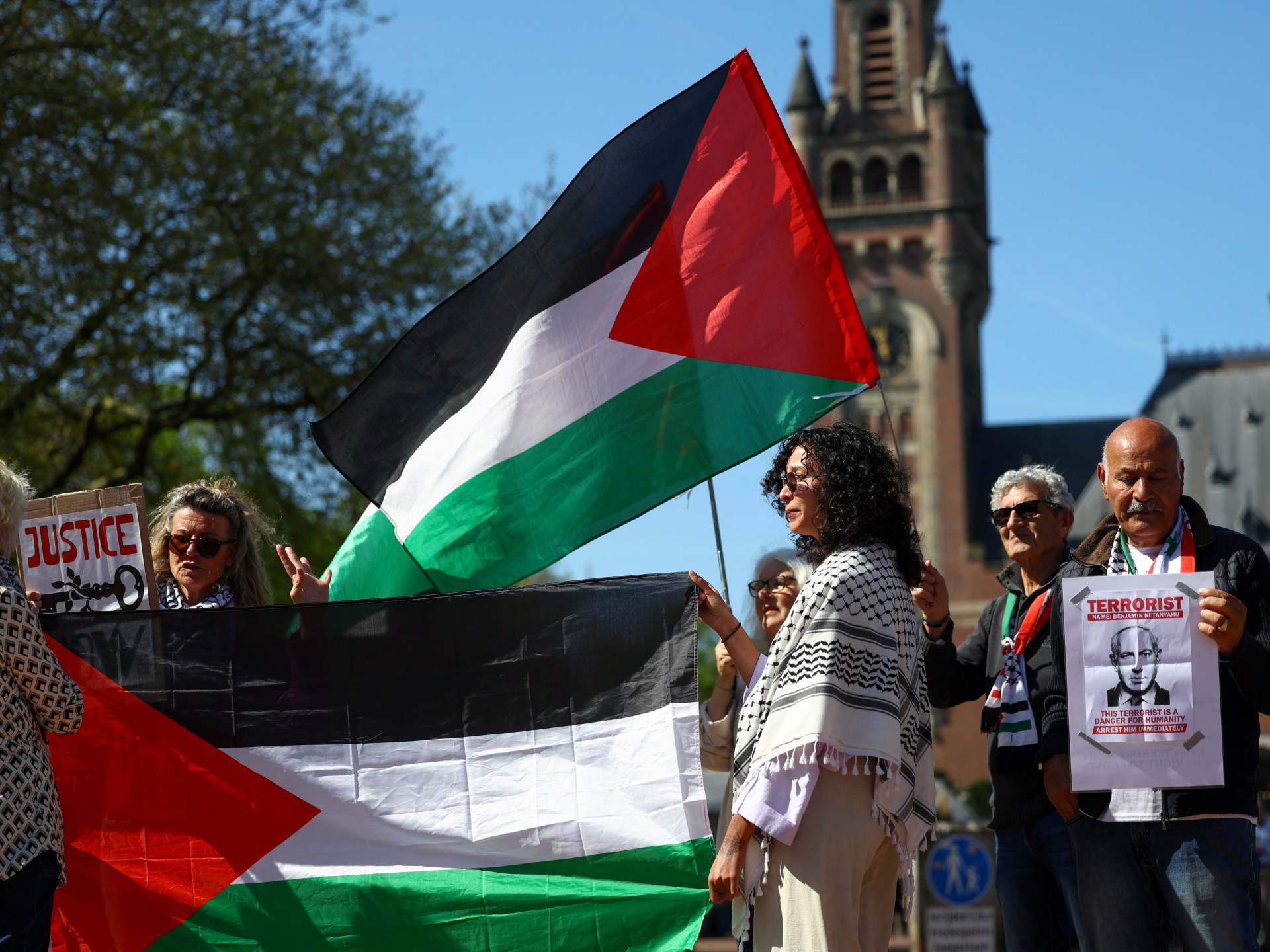
On May 2, the International Court of Justice (ICJ) concluded public hearings into what Israel’s obligations are regarding allowing United Nations agencies and other relief groups to work in the Palestinian territory it occupies.
A panel of judges has heard oral arguments from 40 countries since Monday, including China, France, Indonesia, Pakistan, Russia and the United Kingdom.
The court will likely deliberate for months before making a ruling, requested of it in December by the UN General Assembly.
Many of the participating states rebuked Israel for acutely restricting humanitarian aid into Gaza since launching a genocidal war on the enclave on October 7, 2023.
Israel has cut off all aid – food or medicine – entirely for the last two months, accelerating the starvation and medical crises.
Here are the key takeaways from the hearings:
Starvation threatens the Palestinians as a people
There was broad consensus that Israel, as an occupying power, would be obliged to allow aid organisations to deliver assistance to the people it occupies, particularly in Gaza, which Israel is also bombing.
Israel has weakened human rights norms through its violations in Gaza, Juliette McIntyre, a legal scholar at the University of South Australia, argued.
She pointed out that nearly all the states speaking at the hearings affirmed that the ability of Palestinians to receive humanitarian relief is necessary for their survival, to guard their right to eventual self-determination and safeguard the entire UN system and the treaties underpinning it.
Put bluntly, she said most states agree that Israel should not be allowed to starve civilians it occupies nor impede the relief work of UN agencies.
“Every state, except for two, agrees that Israel is an occupier and it owes certain obligations,” she told Al Jazeera.

What did Israel say?
Israel submitted written statements which called the hearings a “circus” and accused the court of anti-Semitism.
On top of that, it claimed that it has no obligation to work with what it described as compromised UN organs or aid groups and that its sovereign right to “defend itself” takes priority over its responsibility to deliver aid to the people it occupies.
This is not the first time Israel has refused to attend ICJ sessions leading to an advisory opinion.
The US statement
The US defended Israel, said Heidi Matthews, assistant professor of law at York University, Canada.
She added that the US tried to deny the severity of the situation and shield Israel from accountability by deliberately not speaking about the facts on the ground.
According to Matthews, while the US mainly said the ICJ should advise Israel to uphold its legal obligations under international law, it did not provide details of Israel’s conduct or call for Israel to take concrete steps to mitigate the humanitarian crisis it created.
“This kind of highly formalist and factually empty approach to law is characteristic of one form of fascist engagement with legal argument,” Matthews told Al Jazeera.
The US also tried to “spook” the court by bringing up Israel’s unsupported allegations that the UN relief agency for Palestinians (UNRWA) had been infiltrated by Hamas, said Adel Haque, a legal scholar at Rutgers University.
In October 2024, Israel banned UNRWA, which aids the Palestinians made refugees by the Zionist ethnic cleansing that made way for the declaration of Israel as a state in 1948.
The US is betting that the court can be swayed, Haque said, and so it is trying to encourage a more “general” advisory opinion.
“Basically, if the advisory opinion is made at such a high level of generality, then it wouldn’t say anything about Israel’s conduct at all,” he told Al Jazeera.
More than two million Palestinians in Gaza are starving as they face genocidal levels of violence at Israel’s hands.
ICJ cases as a substitute for action?
While ICJ advisory opinions reaffirm international laws and norms, its non-binding opinions cannot change facts on the ground, and some countries may be seeking ICJ opinions rather than take concrete, coordinated action against Israel, said Haque.
“Many [European states] have come before the ICJ in these hearings to say Israel is not fulfilling its obligations. But the question, now, is what are these states going to do about it?” he told Al Jazeera.

He noted the UK had used the recent hearings to denounce Israel’s obstruction of aid and to speak about its decision to halt arms sales to Israel, not enough of an action, he added.
France also spoke about the need for Israel to quickly facilitate aid into Gaza.
But the statements appear to be attempts to substitute for Europe’s collective failure to take urgent action against Israel for its conduct in Gaza, said Haque.
“The onus is on states to decide what they are going to do about [Israel’s actions] and not to wait for the court to rule on what they already know,” Haque added.
When and how will the ICJ rule?
The ICJ is not expected to issue an advisory opinion for months.
The non-binding advisory opinion will likely not compel Israel or member states to change course, according to legal scholars.
Israel has ignored an earlier binding provisional measures by the ICJ ordering it to scale up humanitarian aid and end acts of genocide in Gaza as a result of a genocide case brought against Israel by South Africa in December 2023.
No state has taken any action against Israel for failing to implement the provisional measures.
McIntyre believes the court will eventually issue a narrow ruling that outlines Israel’s responsibilities to facilitate aid and cooperate with UNRWA.
By the time the court issues its opinion, tens of thousands of Palestinians may have already starved to death, or been ethnically cleansed by Israel.
“The advisory opinion won’t solve the problem on the ground and genuine action [by states] needs to be taken,” warned McIntyre.
Middle East
Israeli attacks kill two more as Syria government reaches deal with Druze | News
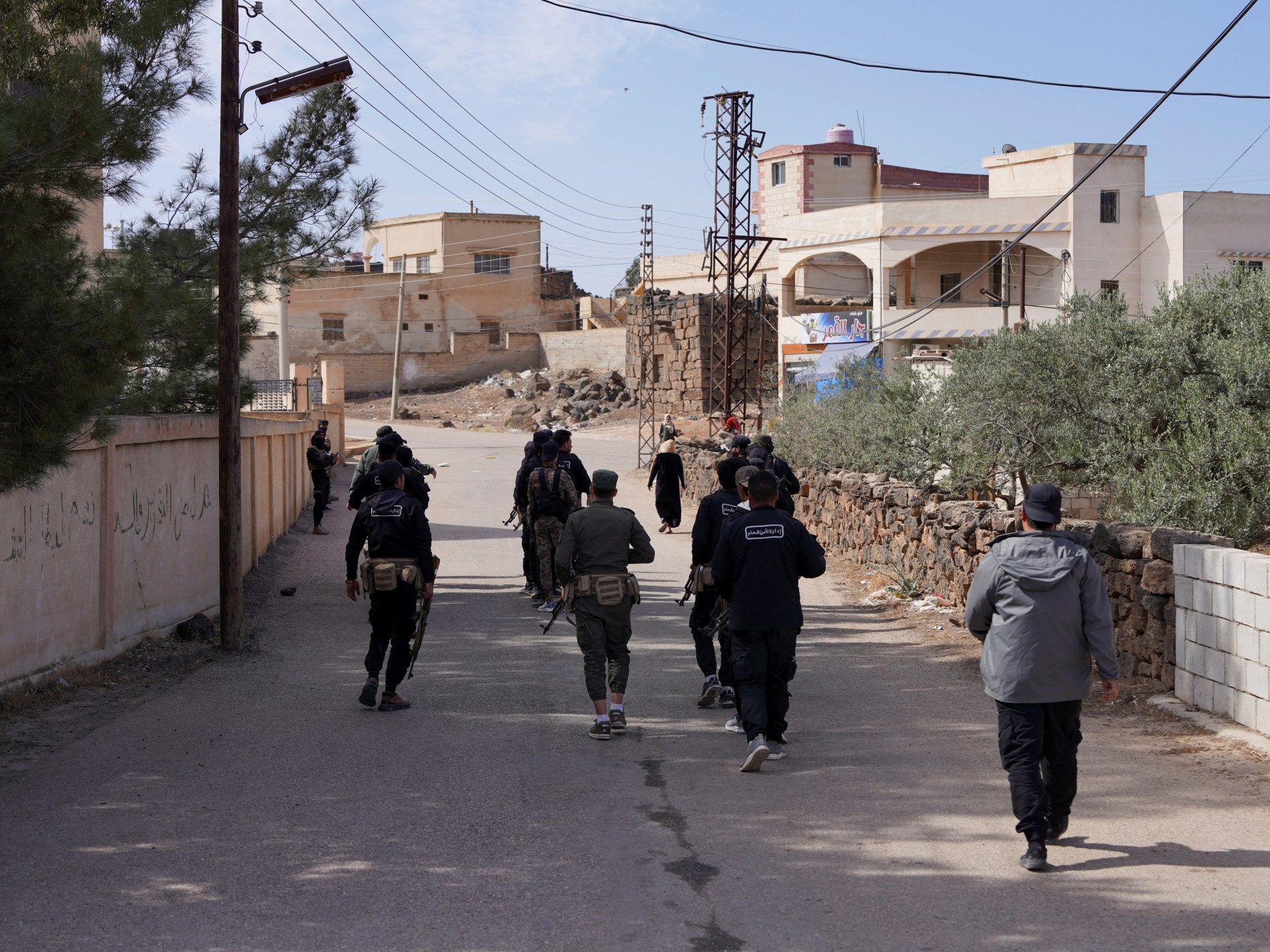
Israel has accused Syria of failing to protect the Druze as Israeli forces occupy and attack parts of the country.
Overnight Israeli air raids on Syria have killed at least two civilians as Israel has stated it is carrying out attacks to protect the Druze minority from government violence, a stance the Syrian Druze community itself rejects.
At least eight people were also reported injured after some 15 air raids hit multiple areas in Syria after midnight Saturday, with at least eight attacks hitting its capital Damascus.
The Israeli military confirmed the attacks on Saturday, saying its forces “struck a military site, anti-aircraft cannons and surface-to-air missile infrastructure in Syria” without giving further details or any evidence.
It comes a day after Israel carried out an attack near Syria’s presidential palace and Prime Minister Benjamin Netanyahu said he would not allow Syrian forces to deploy south of Damascus nor tolerate “any threat to the Druze community”.
More than 100 people were killed this week during fighting between pro-government forces and Druze fighters in Syria.
Reporting from the Damascus suburb of Jaramana where clashes took place between pro-government forces and Druze fighters, Al Jazeera’s Imran Khan said there was an uneasy calm on Saturday.
“A lot of people were in absolute fear. The fighters came in from multiple directions during the clashes on Tuesday, but they were beaten back by the security forces and then Jaramana was put under curfew for at least two days.”
He said during that time, a Druze delegation came in to reassure people that security would return.
Syrian government forces in Damascus and the Druze stronghold of Suwayda province in the southern part of the country reached agreements with Druze leaders to increase security and take in some heavy weapons held by fighters.
“A local force from the Ministry of Defence will now be responsible for security as part of the deal here and in Suwayda,” said Khan.
“But the armed fighters are said to be rogue elements of the fighting forces who were fighting the Bashar al-Assad regime that fell. That’s a real concern, because it feels to many Syrian people like elements are trying to destabilise the country by stoking sectarian tensions.”
He added that the Israeli claim of wanting to protect the Druze has been met with a lot of scepticism from the Druze community.
“They say they can deal with this issue in-house and don’t need Israel to step up. They also point to the way the Druze are regularly mistreated in Israel and how they have had their homes and communities destroyed to make way for illegal Israeli settlements. The feeling here is that the Israeli prime minister is using this to put pressure on Syrian President Ahmed al-Sharaa and attack targets in Syria.”
On Saturday, the United Nation’s Special Envoy for Syria Geir Pedersen said he “strongly condemns Israel’s continued and escalating violations of Syria’s sovereignty, including multiple air strikes in Damascus and other cities”.
The Israeli military, which continues to occupy parts of Syria, including the Golan Heights, has continued to launch attacks across the country despite international condemnation.
“Despite the challenges, the foreign threats and the Israeli planes, we are present and nothing can prevent us from protecting our people or prevent us from carrying out our duty towards our people,” Ammar al-Hariri, a commander with the Syrian security forces, said from the town of al-Soura al-Kubra in Suwayda.

Salman Olaiwi, a resident of the town, said people felt “relieved” when they heard about the agreement between the government and Druze leaders.
“What good have Israeli threats done us? The Israelis are on their own. As for us, those close to us are better than those far away.”
Middle East
Fear, pain, and a little hope: Volunteer doctors in Gaza | Israel-Palestine conflict News
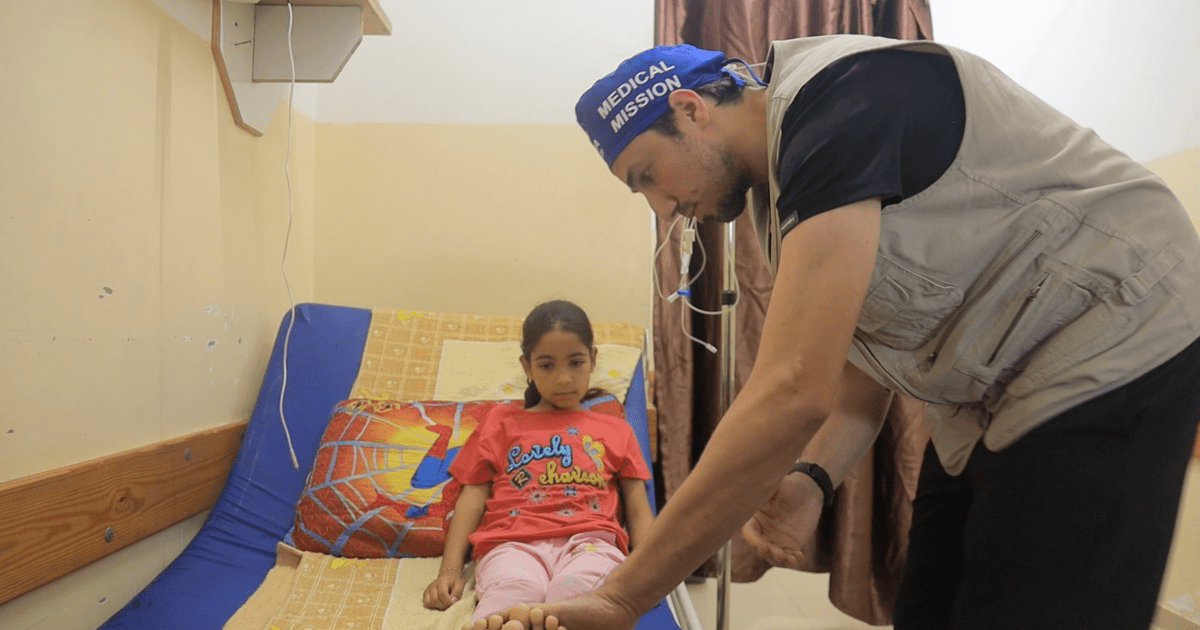
In the Nasser Medical Complex in Gaza’s Khan Younis, a volunteer doctor breaks down as he speaks of the things he has seen during his mission here.
It is impossible to get over the scenes of starving, shocked, and injured children, thoracic surgeon Ehab Massad says.
“The sight of a child standing at the door, bewildered because they have lost their entire family in a bombing, I could never forget that, ever,” he adds in a faltering voice as tears fill his eyes.
‘It will never feel like enough’
Massad is a member of a medical mission by the Rahma Worldwide organisation, one of four doctors working in Qatar to have joined.
“I feel like no matter what we do for [the people of Gaza], it will never feel like enough,” he says.
“[However] the helpless feeling of being outside Gaza and watching the news is gone now; at least I feel like I’m doing my part.”
It’s a feeling echoed by the three other doctors to whom Al Jazeera spoke. Orthopaedic surgeon Anas Hijjawi described a long line of doctors who had signed up for medical missions to Gaza, some of whom had to wait up to five months for a spot on a mission to open up.
Dr Diyaa Rachdan, an ophthalmic surgeon, struggles to keep his voice steady as he tells Al Jazeera that Tuesday was the last day of the mission and the doctors would be heading back to their respective hospitals the next day.
“But I am hoping that there will be more, longer trips to Gaza in the future,” he adds.
Their work in Gaza is not easy, but that is not the reason these doctors are sad to be leaving their mission behind. On the contrary, every day is a struggle as they try to cope with a volume of deaths, illnesses and injuries they simply do not have the equipment to address.
Israel has often prevented the entry of hospital supplies into Gaza during the course of its nearly 19-month-long war on the besieged enclave. Medical missions are not allowed to bring anything in with them.
So, the doctors struggle on with the equipment they can find, sometimes reusing “disposable” medical implements over and over, despite the danger that poses, because there is simply no other choice, Dr Rachdan says.
At the back of their minds, several doctors tell Al Jazeera, is always the thought that people in Gaza die of wounds and illnesses that would be easily treated in any other hospital that has adequate supplies.
![Dr Almanaseer reassures a young patient about the burns covering her body and face [Screengrab/Al Jazeera Mubasher]](https://www.aljazeera.com/wp-content/uploads/2025/04/Screenshot-2025-04-30-at-4.50.35%E2%80%AFPM-1746021548.png?w=770&resize=770%2C481&quality=80)
“Sometimes we can’t cover a patient or take precautions to preserve the sterility of an operating room,” Dr Hijjawi says.
“Sometimes I don’t have the right size metal plates or screws that I need to mend a limb. I’ve had to use the wrong size item … just to get them better enough that they could, some day, travel for more treatment.”
The things that happen to people in war
While doctors coming into Gaza have often followed developments there closely before arrival, nothing, they tell Al Jazeera, could have prepared them for the level of destruction the people of Gaza have to cope with.
“Words can’t describe the pain people are in here, or the level of exhaustion of the medical teams. They’ve been working nearly around the clock for a year and a half now, despite their own personal pain and tragedies,” says the fourth Qatar-based volunteer, urology consultant Mohammad Almanaseer.
There’s a tentativeness in Dr Almanaseer’s voice as he speaks of the case that has impacted him the most deeply, the story of a little boy of about two years old who was brought into the emergency room after Israel had bombed him and his family.
“The usual resuscitation attempts were made with him, but he needed immediate surgery. I was in the operating room, assisting the paediatric surgeon, but it became clear to us that the child probably wouldn’t survive.”
The child died the next morning.
“He was the same age as my son, and even had the same name. Kinan, little Kinan, may God receive you and your mother, who was killed in the same bombing, by his side.”
Injuries as extreme and urgent as Kinan’s are what the medical teams deal with day in and day out, resulting in a large swath of patients who need less urgent care and who keep getting pushed down the list.
Like the patients who have been waiting for months or years for cataract surgery, some of whom were helped by Dr Rachdan during this mission.
The people of Gaza have been forced to carry on throughout the genocidal war on their existence. This strength has inspired a sort of bewildered regard among the visiting volunteer doctors.
Dr Hijjawi tells of an afternoon chat with an operating room nurse who was explaining how he struggles to get to work every day and how he says a final farewell to his wife and children every day, because he never knows what may happen to any of them.

“Then, we heard ambulances coming in,” Dr Hijjawi continues, “and we went to muster in the emergency room. Suddenly, the OR nurse came running past us, desperately asking for an ambulance to go to his house with him because he had heard it had been bombed.
“It took some time … but they finally went out and came back with his parents, who had been killed, and the rest of his family, who had injuries among them. And, you know what? Just two days after this happened to him, he’s here, he’s upstairs working.”
The silence of the shocked
All four doctors seem to have a soft spot for their paediatric patients. It is the children’s pain that affects them the most, and it is their suffering that they will take away with them in their memories.
Al Jazeera follows Dr Almanaseer on his rounds as he visits a young girl in intensive care. She is recovering from severe burns on much of her face and body. In quiet tones, she asks him about whether she will be left with big scars from the burns.
The doctor answers her quietly and seriously, taking time to talk to her until it seems like she’s reassured for today.
Dr Hijjawi is also on his rounds, speaking to a little girl, gently examining her leg and asking her to “lift both feet off the bed for me”. Then he asks a little boy to wiggle his toes so he can check on how he’s healing.
Next is a young girl lying under a recovery blanket in a room on her own. Her right arm is bandaged, which is what he’s there to look at.
He squats on the floor near her bed and moves her arm, then each of her fingers. He’s concerned because she seems to have lost sensation in two fingers and feels the problem will have to be explored surgically, as he tells a concerned relative.
The children are quiet, wide-eyed, doing as they’re told and not saying much else.
“There’s so much they’re dealing with,’ Hijjawi says. “Being in the hospital is scary, but on top of that, so many of them are just lying there waiting, hoping, for someone to visit them – a parent or grandparent or sibling. Some of them don’t know who’s left alive from their family outside the hospital walls.
“Add all that to their physical pain, yes, they are very quiet for very long periods, or their minds seem to wander,” he says quietly.
Dr Rachdan is holding fast to one memory of Gaza’s children that he seems to want to preserve as he gets ready to leave: “One thing that I don’t think I will ever forget is the sight of the children in Gaza who continue playing, despite the destruction.
“They make paper aeroplanes, play ball, despite the tragedy they are surrounded by. I will always remember that.”
Middle East
Former Tunisian PM handed 34-year sentence, rejects ‘terrorism’ charges | Politics News
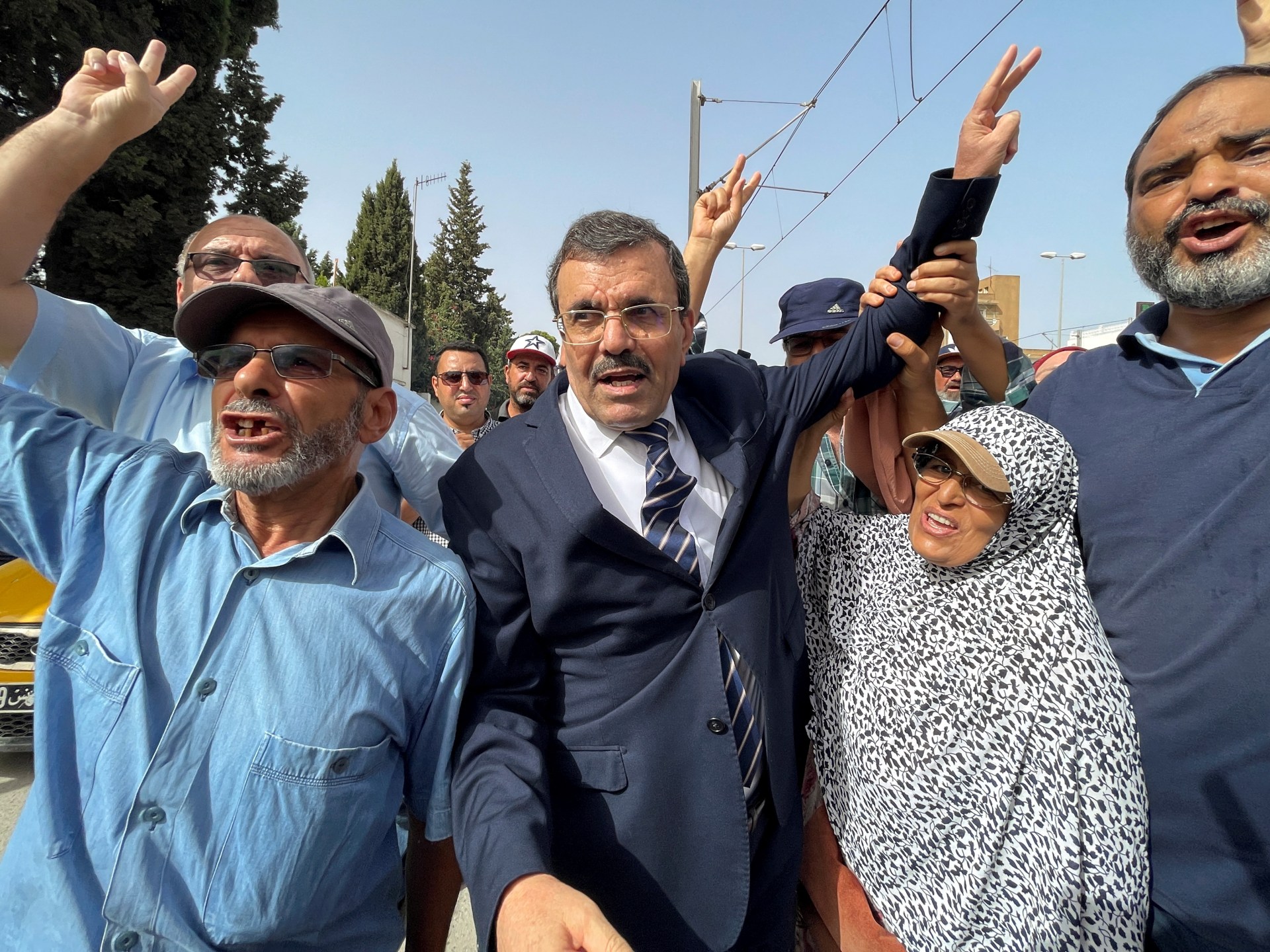
Former Prime Minister Ali Larayedh and the opposition Ennahdha party have denounced the trial as politically motivated.
A Tunisian court has sentenced former Prime Minister Ali Larayedh to 34 years in prison over accusations he facilitated the departure of fighters to Syria – a charge the opposition figure strongly denies.
“I was neither sympathetic, nor complicit, nor neutral, nor lenient towards violence, terrorism,” Larayedh told the judge on Friday, rejecting what he and his Ennahdha party have called a politically motivated prosecution.
The ruling is the latest blow to the Ennahdha party, a major opposition force to President Kais Saied.
Larayedh, who served as prime minister from 2013 to 2014, has been in detention since 2022.
His sentencing comes just a week after the arrest of vocal Saied critic Ahmed Souab and new prison terms handed down to political opponents, media figures and businesspeople on various conspiracy charges.
According to state news agency TAP, the sentences apply to eight individuals, with prison terms ranging from 18 to 36 years. The court did not name those convicted alongside Larayedh.
Ennahdha denies all terrorism-related allegations, arguing that the case is part of a broader campaign against dissent that has intensified since Saied suspended parliament and assumed sweeping powers in 2021. The government maintains that Tunisia’s judiciary is independent, rejecting claims of political interference.
Human rights groups, however, say the crackdown on opposition voices – including the jailing of Souab – marks a dangerous escalation. Many warn that democratic gains in the birthplace of the Arab Spring in the years since the 2011 revolution are being steadily rolled back.
Growing protests against Tunisian president
Saied faced protests on Thursday as opponents took to the streets of Tunis, accusing him of using the judiciary and police to silence dissent.
The demonstration, the second in a week, comes amid growing alarm over what critics see as an authoritarian drift in the country that sparked the Arab Spring.
Marching down Habib Bourguiba Avenue, anti-Saied protesters chanted slogans including “Saied go away, you are a dictator” and “The people want the fall of the regime” – echoing the calls that fuelled the 2011 uprising that ousted former President Zine El Abidine Ben Ali.
Supporters of Saied held a counter-rally on the same boulevard, shouting, “No to foreign interference” and “The people want Saied again”.
The opposition accuses Saied of undermining the democracy won in the 2011 revolution, since he seized extra powers in 2021 when he shut down the elected parliament and moved to rule by decree before assuming authority over the judiciary.
-

 Europe2 days ago
Europe2 days agoMo Abudu, Nigerian media mogul, has a vision for African cinema
-

 Middle East1 day ago
Middle East1 day agoDrones hit ‘Freedom Flotilla’ Gaza aid ship in international waters | Israel-Palestine conflict News
-

 Sports2 days ago
Sports2 days agoCoco Gauff hands Iga Świątek one of the worst defeats of her career to reach Madrid Open final
-
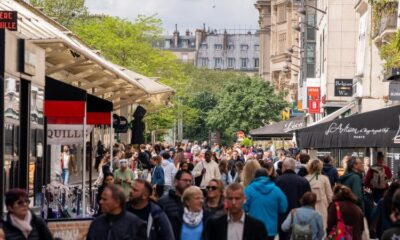
 Europe1 day ago
Europe1 day agoAnalysis: US tariffs could make Europe ‘Great Again’ by lowering prices
-
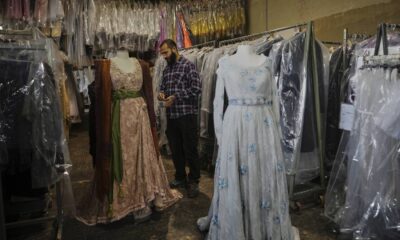
 Lifestyle2 days ago
Lifestyle2 days agoAP PHOTOS: Artists in this former pasta factory preserve Italian opera traditions
-

 Lifestyle2 days ago
Lifestyle2 days agoBlack dandyism etches place into Met Gala history — and global visibility
-

 Sports2 days ago
Sports2 days agoRafael Nadal tells CNN exclusively that he ‘100%’ believes Jannik Sinner is innocent amid return from doping suspension
-

 Middle East2 days ago
Middle East2 days agoSyrian Druze leader condemns government over sectarian violence | News




